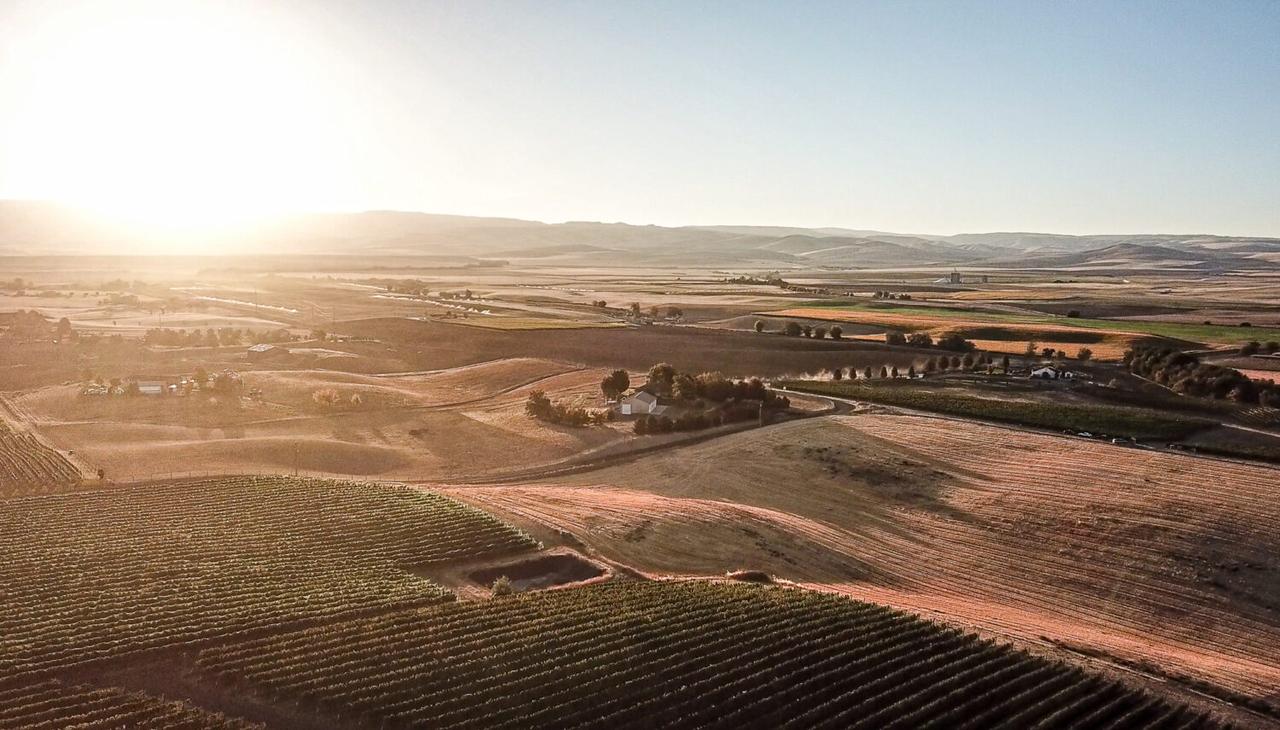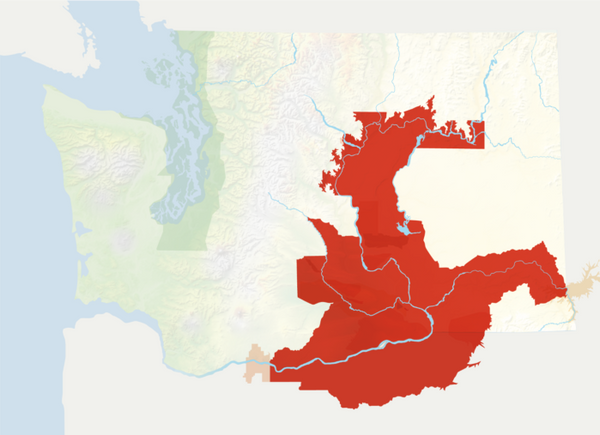
Columbia Valley AVA
The Columbia Valley gets its name from the river that cuts through the appellation. The river itself was named after Captain Robert Gray's ship, the Columbia Rediviva, which was the first to travel up the river in 1792.
Key statistics
1984
59,234 acres
60,079
6-8 inches

Characteristics
About the region
Encompassing more than a quarter of the state, the Columbia Valley is by far Washington’s largest growing region at over 11 million acres. It is home to over 99% of all of Washington’s vinifera acreage.
The Columbia Valley lies in the rain shadow of the Cascade Mountain range. The low desert region has an arid and semi-arid, continental climate with limited rainfall. Irrigation is therefore required to grow vinifera grapes. However, the Columbia River which cuts through the appellation is one of the largest rivers in the country. This river and its tributaries, along with aquifers, provides ample water for grape growing.
The use of irrigation, along with consistently warm, dry temperatures during the growing season, provides growers with a high amount of control over grape development compared to many other regions of the world. This leads to a smaller range of vintage variation and consistently high-quality wines.
The Columbia Valley’s soils are defined by the Missoula Floods, a series of cataclysmic floods that occurred 15,000 years ago. Most vineyards lie below the floodwaters, with soils of loess—windblown deposits of sand and silt—overlying gravel and slackwater sediment with basalt forming the bedrock. The variations across the basin provide a diversity of soil types that are well drained and ideal for viticulture.
In contrast to most other growing regions, many of the vines in Washington are own rooted, which is said to contribute to a greater level of varietal typicity. Almost all of Washington’s growing regions are sub-appellations of the Columbia Valley. Exceptions are Puget Sound, Columbia Gorge, and Lewis-Clark Valley.

















